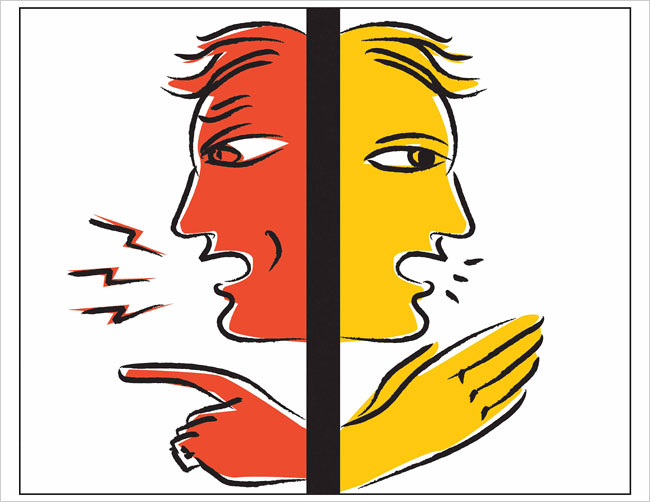How to Deal with Criticism
 Let’s face it – no one really enjoys being criticized, yet at some point in our lives, we all have to deal with criticism. Being able to handle all sorts of criticism maturely is an important factor in emotional growth.
Let’s face it – no one really enjoys being criticized, yet at some point in our lives, we all have to deal with criticism. Being able to handle all sorts of criticism maturely is an important factor in emotional growth.
Criticism can be categorized as destructive or constructive. Criticism can be considered destructive if it is given in a harsh manner, without much thought for the person’s feelings. For example, “You are incompetent and the report you wrote is appalling”. Criticism can also be constructive and if presented constructively, criticism can help a person to grow and learn. When criticism is constructive, the feedback is usually valid and it is presented in a non-threatening manner. For example, “I can see that you spent a lot of time on the report; I think it could be even better if you researched your topic more thoroughly”.
The way we respond to criticism is often rooted in our experiences with criticism in childhood. If we were rarely criticized as a child, we may not cope well with criticism when we experience it as an adult, but if we learned to take constructive criticism as a child, we will likely respond to criticism well in adulthood. However, if we were harshly and destructively criticized as a child, we will likely experience criticism as hurtful and upsetting. This typically occurs if our whole person was criticized instead of our actions and behaviors. If a child who misbehaves is told “you are bad”, this implies that the child as a whole person is bad and the child will likely feel hopeless about how to change. If instead the child is told “that was a bad thing to do e.g., ‘hitting your sister was bad’, then the behavior and the child as a person can be seen as two separate things. It is the behavior that is bad, not the child, which helps the child to see that he has the power to change his behavior.
There are three different ways that people typically respond to criticism:
- Passively. We feel upset and confused and try to run and hide from the situation. We will agree, whether the criticism was valid or not and we tend to heap self-criticism on ourselves on top of the criticism we just received. People who respond passively to criticism tend to see the criticism as a rejection of their entire self. This response typically leads to poor self-acceptance, depression and anxiety.
- Aggressively. The criticism is viewed as a personal attack and feeling attacked, we become defensive and launch a counter-attack. This type of response to criticism usually leads to anger, aggression and interpersonal conflicts.
- Assertively. We can see the difference between destructive and constructive criticism and we can respond in an appropriate way. We are clearly able to see that the criticism is about our actions or behaviors and not about us as a person. We don’t respond by becoming defensive, blaming, getting angry or running away.
Learning to respond assertively to criticism is a skill that can be cultivated by changing the unhelpful thoughts that contribute to our passive or aggressive responses.
For example:
- If I’ve done something wrong, that doesn’t mean anything about me as a person. I can separate my actions from me.
- I can speak up and let someone know if their criticism has upset, angered or hurt me.
- Giving feedback isn’t always meant to be critical. As a matter of fact, it can be helpful and kind.
- What can I learn from this criticism? Is there some truth to what the person has said? Although she may not have presented it kindly, I might be able to learn and improve from their suggestion.
Giving and receiving feedback and criticism can be both negative and positive. Done well, it demonstrates that we value our relationship with the other person and that we care about their behavior. Sweeping our resentment for someone’s actions under the carpet without expressing it can, in the long run, cause more problems in the relationship than a criticism that is lovingly and helpfully expressed and accepted.
Speak With An Orlando Therapist at GroundWork
407-378-3000
Meet Our Counselors
What Is Cognitive Behavioral Therapy?
Questions About Insurance & Rates? Learn More

